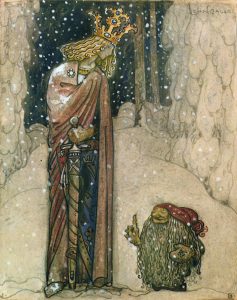 Now at Kobold Press. (This is the fifth installment in a series of articles for players hoping to get the best possible experience from their time around the RPG table.)
Now at Kobold Press. (This is the fifth installment in a series of articles for players hoping to get the best possible experience from their time around the RPG table.)“Adventures, in retrospect, are pieces of extremely bad luck that missed a fatal ending.”
―Lawrence Griswold, Tombs, Travel and Trouble
It’s a shame that Lawrence Griswold isn’t better known these days. He was a real-life Indiana Jones, a Harvard-educated anthropologist and archaeologist who spent most of the 1920s and ‘30s carving trails through Guatemalan jungles in search of Mayan ruins and exploring the then-”lost world” island of Komodo, south of Borneo, where his expedition was the first to capture a live, adult Komodo dragon. A memoir of his adventures, Tombs, Travel and Trouble, was published in 1937, wherein he offered the humorously cynical view of adventure quoted above.
However much Griswold objects that “while (adventures) were happening to me, I cannot ever remember having been particularly pleased at the occasion,” or that he was generally “scared to death, too busy to think about it at all, or just damned annoyed” while his adventures were taking place, it’s obvious that in hindsight he loved every moment of it and wouldn’t trade his experiences for anything.
It would be foolish to expect adventures in roleplaying games to go any smoother than they do in real life. In fact, since our tabletop escapades never result in anyone really getting killed, injured, maimed, scarred, trapped in a labyrinthine tomb, or cast adrift in a rudderless boat for five days without water, they can afford to be even more thrill-filled than the real thing, the way a roller-coaster ride is more thrilling than a drive on the freeway.
Read the rest at Kobold Press ...
